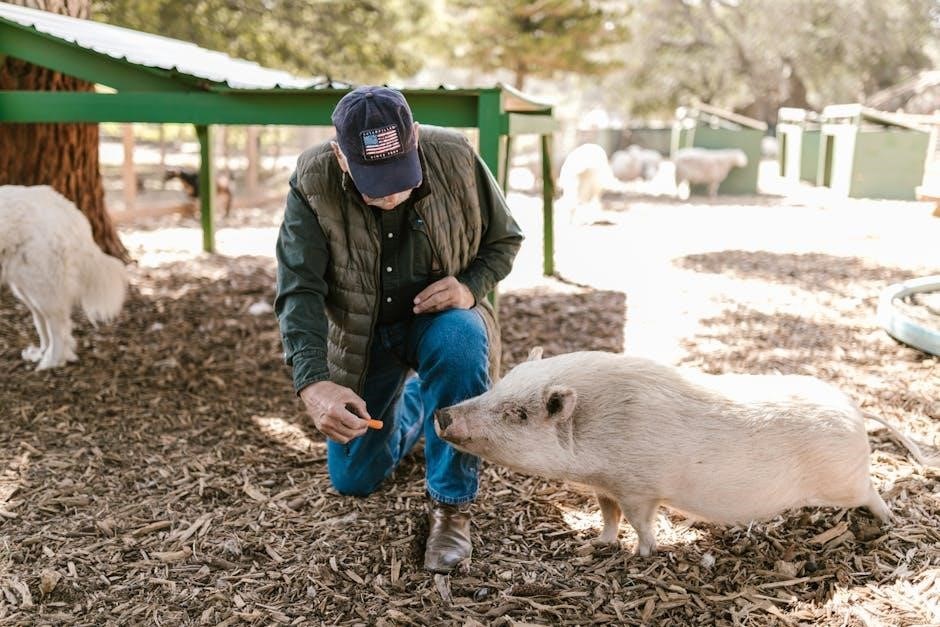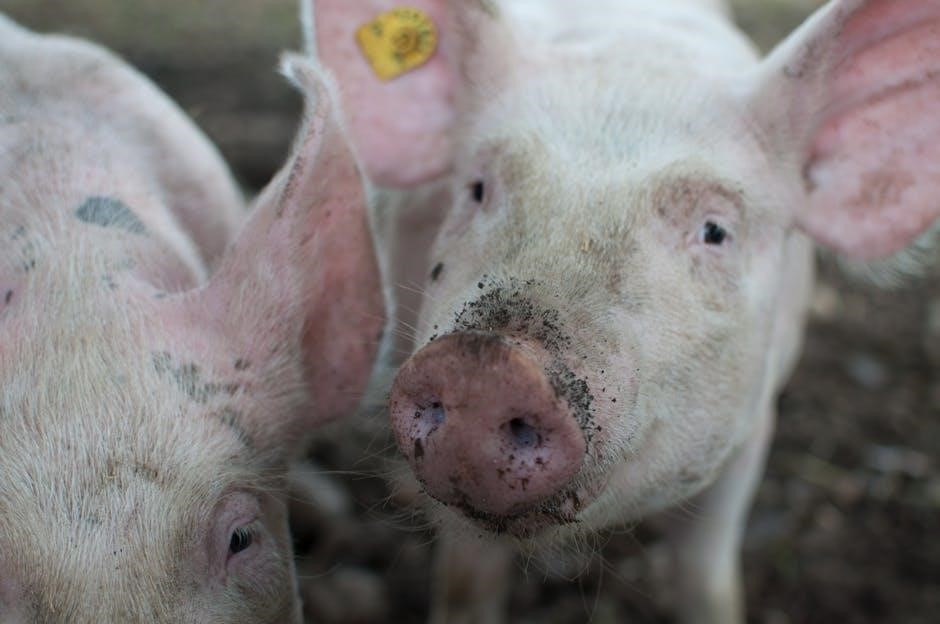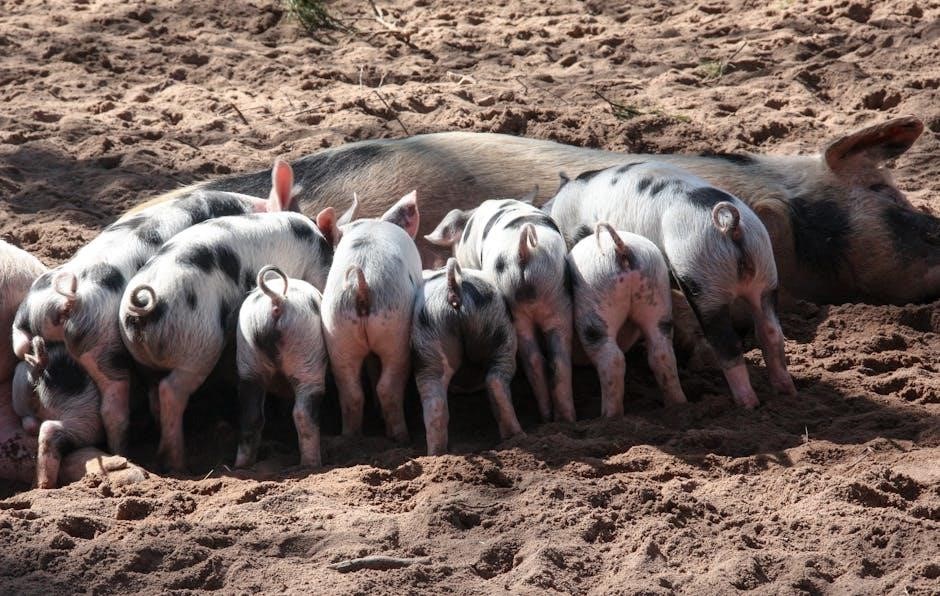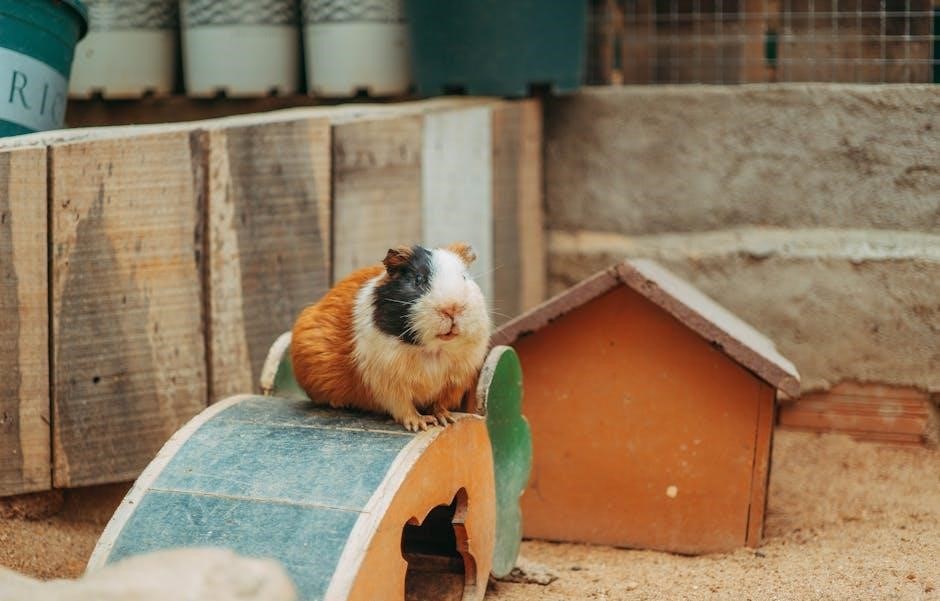Welcome to our comprehensive guide to caring for guinea pigs! Discover essential tips to ensure your furry friend stays happy, healthy, and thriving. From habitat setup to dietary needs, health monitoring, and social interaction, this guide covers everything you need to know to provide the best care for your beloved pet.
Are Guinea Pigs the Right Pet for You?
Guinea pigs can be wonderful pets, but they require a significant time commitment and attention. They are social, intelligent, and thrive in interactive environments. If you’re considering a guinea pig, ensure a responsible adult is ready to handle daily care, including habitat maintenance and health monitoring. They live between five to eight years, so it’s essential to understand their needs fully. If you’re willing to invest time and effort, guinea pigs can bring joy and companionship to your family. Are you ready for this rewarding journey?
Understanding the Commitment to Caring for Guinea Pigs
Caring for guinea pigs requires a significant time investment and attention to detail. They need daily interaction, a clean habitat, and regular health checks. Their lifespan of five to eight years means a long-term commitment. Responsibilities include cage cleaning, providing fresh food, and monitoring for signs of illness. Veterinary visits should be scheduled annually, especially for dental care. If you’re ready to dedicate time and effort, you’ll be rewarded with a loving and joyful companion. Proper care ensures a happy, healthy life for your guinea pig.

Setting Up the Perfect Habitat
Creating a comfortable environment is crucial for your guinea pig’s well-being. A well-designed habitat ensures their physical and emotional health, setting the foundation for a happy life.
Choosing the Right Cage Size and Type
Selecting the right cage is vital for your guinea pig’s comfort and well-being. A minimum cage size of 7.5 square feet is recommended, with ample space for movement. Opt for a cage with solid bottoms, as wire flooring can harm their feet. Avoid aquariums due to poor ventilation. A spacious, well-ventilated cage ensures your guinea pig stays healthy and active. Larger cages also allow for better arrangement of bedding, toys, and hiding places, promoting a stress-free environment.
Best Bedding Options for Guinea Pigs
Choosing the right bedding is crucial for your guinea pig’s comfort and hygiene. Opt for safe, absorbent materials like aspen wood shavings or fleece. Avoid cedar shavings, as they can cause health issues. Hay, such as timothy hay, is another excellent option, promoting natural foraging behavior. Deep layers of bedding help keep the cage clean and dry. Regularly replace soiled bedding to prevent odors and maintain a healthy environment for your guinea pig. A clean habitat ensures their well-being and happiness.
Maintaining the Right Temperature
Maintaining the right temperature is vital for your guinea pig’s health. They thrive in temperatures between 65°F to 75°F (18°C to 24°C). Avoid placing their cage near drafts, windows, or extreme heat sources. Use a thermometer to monitor the temperature accurately. Ensure their environment remains stable, as sudden changes can stress them. Keep their habitat away from direct sunlight to prevent overheating. Regularly check the temperature to ensure it stays within a safe and comfortable range for your guinea pig.
Essential Accessories for a Guinea Pig Cage
Equipping your guinea pig’s cage with the right accessories ensures their comfort and well-being. A sturdy food dish and water bottle are must-haves to keep their meals fresh and accessible. Add hiding places, like tunnels or boxes, to provide security. Include toys, such as chew toys, to keep them entertained and stimulate natural behaviors. A exercise ball or wheel can encourage physical activity. These essentials create a safe, engaging environment that supports your guinea pig’s physical and mental health.

Dietary Requirements
A balanced diet is crucial for guinea pigs, including high-quality pellets, fresh vegetables, hay, and limited fruits. Ensure constant access to fresh water for optimal health.
High-Quality Pellets as the Main Staple
High-quality pellets should form the core of your guinea pig’s diet, providing essential vitamins and minerals. Opt for a Timothy hay-based pellet with no added sugars or artificial ingredients. Avoid mixes with seeds or dried fruits, as they can lead to health issues. Pellets should be fresh and fed in moderation, about 1/4 cup per guinea pig daily, depending on their weight. Always ensure access to unlimited hay alongside pellets to promote digestive health and prevent boredom.
Fresh Vegetables for Guinea Pigs
Fresh vegetables are a vital part of a guinea pig’s diet, providing essential nutrients and variety. Offer a variety of leafy greens like kale, spinach, and lettuce daily. Include colorful vegetables such as carrots, bell peppers, and cucumbers in moderation. Avoid high-sugar vegetables like potatoes and corn. Introduce new vegetables gradually to prevent digestive upset. Ensure all vegetables are washed thoroughly and free of pesticides. A portion size of about 1 cup per guinea pig daily is recommended, divided into 2-3 servings for optimal health.
Incorporating Fresh Fruits in Moderation
Fresh fruits can be a delicious and nutritious treat for guinea pigs when given in moderation. They are high in sugar, so overfeeding can lead to health issues like obesity and diabetes. Offer small portions of fruits like berries, apples, and melons, ensuring they are seedless and chopped. Avoid citrus fruits and remove seeds or pits to prevent choking. Limit fruits to 1-2 tablespoons per guinea pig daily to maintain a balanced diet and promote overall health and happiness.
The Importance of Hay in Their Diet
Hay is a cornerstone of a guinea pig’s diet, essential for maintaining healthy digestion and dental health. It helps wear down their continuously growing teeth and prevents digestive issues. Provide unlimited access to high-quality hay, such as Timothy hay, which should be the main staple. Avoid overfeeding with alfalfa hay due to its high calcium content. Hay keeps guinea pigs satisfied between meals and supports overall well-being, ensuring a balanced and nutritious diet for a happy, healthy life.
Ensuring Proper Hydration
Proper hydration is vital for guinea pigs’ health. Ensure they always have access to fresh, clean water using a water bottle or dish. Change the water daily to prevent bacterial growth. Avoid bowls, as they can tip over or become contaminated. Check the water bottle regularly for leaks or blockages. Dehydration can lead to serious health issues, so monitor their water intake closely. A hydrated guinea pig is a healthy one, so make water availability a priority in their daily care routine.

Health and Wellness
Guinea pigs require regular monitoring for signs of illness, such as lethargy or labored breathing; Schedule annual vet visits to ensure their overall health and wellness.
Recognizing Signs of Illness
Guinea pigs often hide illness, making it crucial to monitor their behavior. Look for signs like lethargy, loss of appetite, or labored breathing. Check for changes in stool or urine output, as these can indicate health issues. Discharge from eyes or nose, skin lesions, or unusual vocalizations are also red flags. Regularly inspect their fur for matting or dirt, which can signal poor grooming due to illness. If you notice any unusual symptoms, consult a veterinarian experienced in caring for guinea pigs immediately to ensure early diagnosis and treatment.
Importance of Annual Veterinary Check-Ups
Annual veterinary check-ups are vital for maintaining your guinea pig’s health and well-being. These visits allow a qualified vet to monitor their overall condition, detect potential issues early, and provide guidance on care. Since guinea pigs are prone to hidden illnesses, regular check-ups can prevent serious problems. A vet experienced in exotic pets can assess their dental health, weight, and behavior, ensuring your guinea pig leads a happy, healthy life. Don’t wait for symptoms to appear—schedule yearly visits to stay ahead of their healthcare needs.
Monitoring Dental Health
Monitoring your guinea pig’s dental health is crucial, as their teeth grow continuously. Watch for signs like drooling, difficulty eating, or tooth discoloration, which can indicate problems. If left untreated, dental issues can lead to serious infections or organ damage. Regular veterinary check-ups are essential to catch these issues early. A diet rich in high-quality hay and limited pellets can help keep their teeth trimmed naturally, promoting overall health and preventing costly vet visits.
Common Health Issues in Guinea Pigs
Guinea pigs are prone to specific health issues, including respiratory infections, skin problems, and parasites. They can also suffer from vitamin C deficiency, which affects their immune system. Additionally, obesity and dental problems are common due to improper diet or lack of care. Regular check-ups with a guinea pig-savvy vet are crucial to catch these issues early. Monitoring their behavior and physical condition helps ensure they receive timely treatment and maintain overall well-being.
First Aid Tips for Guinea Pigs
Guinea pigs require immediate attention in emergencies. For minor injuries, stop bleeding with a clean cloth and apply gentle pressure. If a fracture is suspected, handle them carefully and seek veterinary care. Keep your guinea pig calm and warm during transport. Signs of distress, such as difficulty breathing or loss of appetite, warrant urgent vet visits. Always have a first aid kit and contact details for an exotic pet vet on hand to ensure prompt care for your guinea pig.

Social and Behavioral Needs
Guinea pigs are highly social animals that thrive in pairs, fostering companionship and reducing stress. They communicate through various sounds and body language, expressing emotions and needs. Providing toys, tunnels, and safe spaces encourages natural behaviors like digging and foraging, essential for their mental and physical well-being. A stimulating environment keeps them happy and active.
Why Guinea Pigs Should Be Kept in Pairs
Guinea pigs are social, intelligent creatures that naturally thrive in pairs or groups. Keeping them together provides companionship, reducing stress and loneliness. They communicate through sounds and body language, fostering a sense of security. Living alone can lead to depression and boredom, while pairing encourages natural behaviors like grooming and playing. However, introducing guinea pigs should be done carefully to ensure compatibility. A harmonious pair creates a joyful and stimulating environment, enhancing their overall well-being and happiness.
Building a Bond with Your Guinea Pig
Building a strong bond with your guinea pig requires patience, consistency, and gentle interaction. Start by gaining their trust through calm, slow movements and offering treats like fresh vegetables. Spend time daily interacting, allowing them to explore your hands or lap. Handle them carefully, ensuring they feel secure. Positive reinforcement, such as offering their favorite foods, encourages affectionate behavior. Over time, your guinea pig will become more confident, fostering a deeper connection and a lifelong friendship.
Understanding Guinea Pig Communication
Guinea pigs communicate through a variety of sounds and body language. Squeaking often indicates excitement or curiosity, while chirping may signal stress or anxiety. Grunting can show discomfort or territorial behavior. Pay attention to posture: a relaxed guinea pig stands tall, while a hunched or hiding pig may feel ill or scared. Understanding these cues helps you recognize their emotions and needs, fostering a stronger bond and ensuring their well-being.
Managing Behavioral Issues
Guinea pigs may exhibit behavioral issues like aggression, dominance, or stress due to environmental or social factors. Addressing these early is crucial. Ensure proper socialization and a stress-free environment. Provide plenty of space and enrichment to reduce competition. Monitor for signs of anxiety, such as excessive pacing or hiding. Consult a vet to rule out health issues. Positive reinforcement and consistent interaction can help manage unwanted behaviors, fostering a calm and engaging life for your guinea pig.

Grooming and Hygiene
Guinea pigs need regular grooming to stay healthy. Trim their nails carefully, brush their fur to prevent matting, and clean their cage frequently to ensure hygiene.
Trimming Guinea Pig Nails
Regular nail trimming is crucial for guinea pigs to prevent overgrowth, which can cause pain and mobility issues. Use small animal or human nail clippers, taking care to avoid the quick (the sensitive part containing blood vessels). Start trimming when your guinea pig is young to help them get accustomed to the process. If you’re unsure or nervous, consult a veterinarian for guidance. Proper nail care is essential for their comfort and overall well-being.
Brushing Their Fur Regularly
Brushing your guinea pig’s fur regularly is essential for their grooming and overall health. It helps remove loose hair, reduce shedding, and prevent hairballs. Use a soft-bristle brush or a gentle grooming tool designed for small animals. Brushing also strengthens the bond between you and your guinea pig. Aim to brush their fur a few times a week, especially during shedding seasons, to keep their coat clean and healthy. This simple practice can also help you detect any skin issues early on.
Cleaning the Cage
Cleaning your guinea pig’s cage is a crucial part of their care. Remove soiled bedding, droppings, and uneaten food daily, and perform a full clean weekly. Replace bedding completely, disinfect surfaces with a pet-safe cleaner, and rinse thoroughly. Clean food dishes and water bottles daily to prevent bacterial growth. A clean environment reduces health risks and keeps your guinea pig happy. Regular cage maintenance also helps prevent odors and ensures a fresh, comfortable space for your pet to thrive.

Handling and Interaction
Handling guinea pigs gently and regularly helps build trust and reduces stress; Start with short sessions, supporting their body, and avoid sudden movements. This fosters a strong bond and makes interaction enjoyable for both you and your pet.
Safe Handling Techniques
Mastering safe handling techniques is crucial for guinea pig care. Move slowly and gently to avoid startling them. Always support their body and lift from underneath, ensuring their legs are secure. Never pick them up by their fur or limbs, as this can cause injury. Start with short sessions to build trust, and avoid handling when they appear stressed or frightened. Proper handling fosters a strong bond and ensures your guinea pig feels safe and comfortable in your care.
Teaching Guinea Pigs to Be Handled
Teaching guinea pigs to be handled requires patience and positive reinforcement. Start with short sessions, allowing them to become comfortable with your presence. Offer treats like fresh vegetables to build trust. Gently place your hand in their cage, letting them approach at their own pace. Once they’re comfortable, carefully scoop them up, ensuring support for their body. Move calmly and avoid sudden movements to prevent stress. Over time, they’ll learn to enjoy being handled, creating a strong bond between you and your pet.
Signs of Stress in Guinea Pigs
Recognizing signs of stress in guinea pigs is crucial for their well-being. Common indicators include pacing, excessive hiding, or changes in appetite. They may also exhibit labored breathing, trembling, or vocalizations like squeaking. Avoid sudden movements or loud noises, as these can trigger stress. Ensure a calm environment and provide hiding places to help them feel secure. Regular interaction and a consistent routine can minimize stress and promote a happy, healthy guinea pig.

Understanding Guinea Pig Behavior
Guinea pigs are social, intelligent creatures with unique behaviors. They thrive in pairs, communicate through vocalizations, and exhibit natural foraging and digging instincts. Understanding these traits helps provide better care.
Common Behaviors and What They Mean
Guinea pigs exhibit various behaviors that reflect their emotions and needs. Vocalizations like squeaking or chirping indicate excitement, fear, or curiosity. Pacing may signal boredom or stress, while digging and foraging are natural instincts. Popcorning, a joyful leap, shows happiness. Understanding these behaviors helps you identify their mood and ensure their well-being. Recognizing these signs allows you to provide a stimulating environment and address any potential issues early, fostering a happy and healthy life for your pet.
Why Guinea Pigs Love to Dig
Guinea pigs are natural foragers with a strong instinct to dig, rooted in their wild ancestors’ behavior. Digging helps them uncover food, create burrows for shelter, and exercise their muscles. In captivity, this instinct remains strong, and they often dig to explore their environment or relieve boredom. Providing deep, safe bedding like wood shavings or hay encourages this natural behavior, keeping them mentally and physically stimulated. It’s a sign of happiness and health when they engage in digging activities.
Encouraging Natural Foraging Behavior
Guinea pigs are natural foragers, and encouraging this behavior is essential for their mental and physical well-being. Hide fresh vegetables, hay, or pellets around their cage to simulate foraging. Use interactive toys or puzzle feeders to challenge them and keep them engaged. Scatter food across bedding to mimic their wild foraging habits. This activity not only prevents boredom but also exercises their sense of smell and keeps them active, promoting a happy and healthy lifestyle.

Enrichment Activities
Enrichment activities are vital for guinea pigs’ mental and physical stimulation. Provide toys, chewables, and rotate items regularly to keep them engaged. Introduce new environments safely to encourage exploration and natural behavior, ensuring a happy and stimulated life.

Providing Toys and Chewables
Providing toys and chewables is essential for guinea pigs’ mental and physical stimulation. Offer tunnels, chew toys, and untreated wood or hay-based items to keep them entertained. Rotate toys regularly to prevent boredom and encourage exploration. Safe materials like cardboard rolls or untreated wood are ideal. Avoid plastic toys that can be ingested. Chewables help maintain dental health by preventing overgrowth. Ensure all items are guinea pig-safe to avoid health risks. This enrichment fosters natural behavior and keeps your pet happy and engaged.
Creating a Safe Outdoor Enclosure
Creating a safe outdoor enclosure for guinea pigs ensures they enjoy fresh air and exploration while staying protected. Use sturdy materials like wood or metal, and cover the top to prevent predators. Ensure the enclosure is escape-proof and well-ventilated. Place it in a shaded area to protect from direct sunlight and extreme weather. Add hiding places like plants or tunnels for comfort. Supervise your guinea pigs during outdoor time to ensure their safety and provide fresh water and snacks. This setup offers enrichment and exercise in a secure environment.
Introducing New Environments
Introducing guinea pigs to new environments requires patience and care to minimize stress. Start by placing their cage in the new space, allowing them to explore gradually. Ensure the area is safe, free from hazards, and maintained at a comfortable temperature. Provide familiar bedding, toys, and hiding places to ease the transition. Supervise closely to monitor their behavior and adjust as needed. A smooth introduction helps guinea pigs adapt and reduces anxiety, ensuring a positive experience in their new surroundings.
Proper care for guinea pigs is incredibly rewarding, leading to a happy, healthy pet. With commitment and love, you’ll build a strong bond and ensure a joyful life for your furry friend.
Final Tips for a Happy, Healthy Guinea Pig
Ensure your guinea pig lives a fulfilling life by providing a spacious, clean habitat, a balanced diet rich in fresh veggies and hay, and regular social interaction. Monitor their health closely, scheduling annual vet visits and watching for signs of illness. Keep their nails trimmed and teeth worn naturally. Offer plenty of toys and enrichment to stimulate their mind and body. With consistent care and love, your guinea pig will thrive, bringing joy and companionship to your family.
The Rewards of Proper Guinea Pig Care
Proper care for your guinea pig leads to a happy, healthy, and thriving pet, bringing immense joy and companionship. Watching them flourish under your dedication is incredibly rewarding. Guinea pigs form strong bonds with their owners, offering affection and playful interactions. Their social nature and unique personalities make them delightful companions. Caring for a guinea pig also fosters a sense of responsibility and fulfillment, knowing you’re providing a loving home. The rewards of proper care are endless, creating a lifelong friendship with your furry friend.
